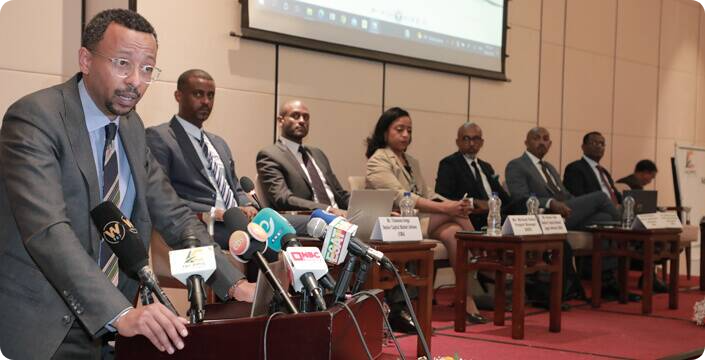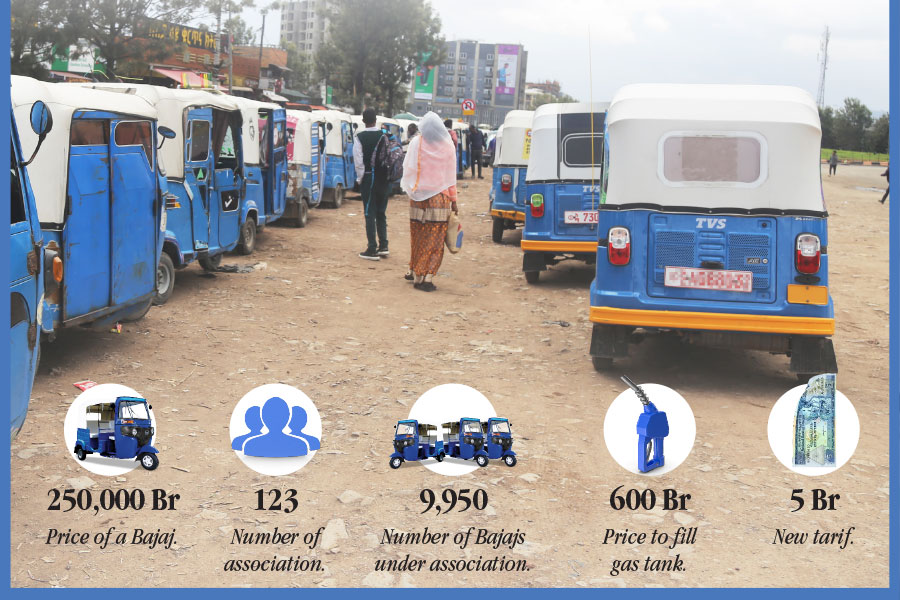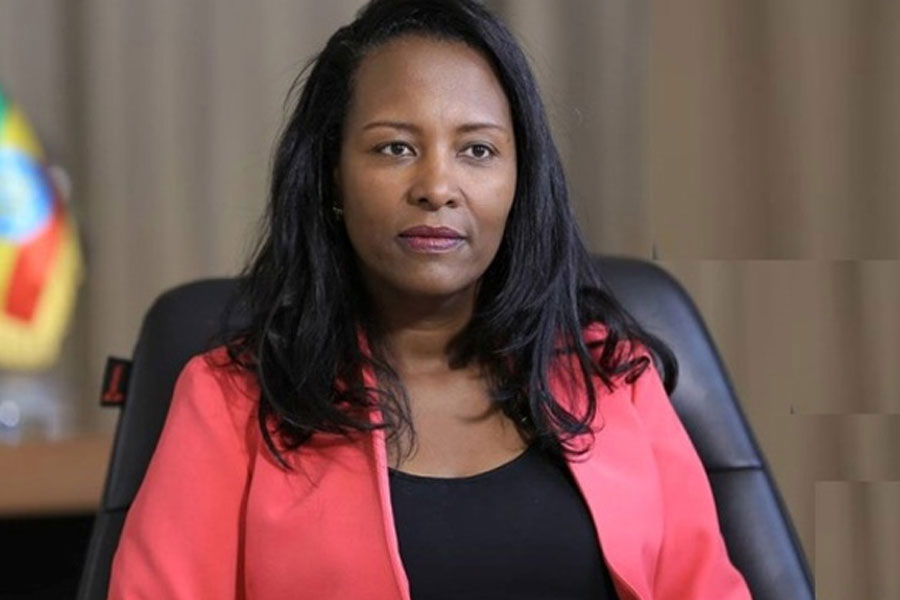
Fortune News | Feb 18,2023
Jun 14 , 2025
By Jayati Ghosh
As the global community struggles with the realities of a shifting geopolitical situation, the emergence of "coalitions of the willing" brings hope. These progressive alliances can lead the charge towards setting ambitious goals, vital for sustainable development and climate action. In this commentary provided by Project Syndicate (PS), Jayati Ghosh, professor of economics at the University of Massachusetts Amherst, urged the upcoming finance summit to set the stage for pioneering solutions that align financial systems with the well-being of the planet.
It is easy to be pessimistic about multilateralism nowadays. Recent international gatherings, including the 2023 Sustainable Development Goals Summit, the 2024 Summit of the Future, and multiple United Nations Climate Change Conferences, have yielded only unfulfilled promises.
At a time when US President Donald Trump is abandoning America's international commitments, rejecting multilateral initiatives, and sowing chaos and confusion in global trade, can the Conference on Financing for Development (FfD4) at the end of this month go any better?
To be sure, the United States may well act as a spoiler in Seville, Spain, or disregard any agreements that are made. But that does not mean that the summit will be a bust. After all, America's withdrawal from the 2015 Paris Climate Agreement during Trump's first term, mere months after the deal entered into force, did not lead to its demise. While action has been limited, almost everyone recognises that without the agreement, climate change would likely occur even faster.
In April, the US withdrew from negotiations on decarbonising shipping at the UN's International Maritime Organisation (IMO), warning that it would consider "reciprocal measures" if any new fees were charged to US ships for their fuel use. Yet, the IMO succeeded in getting 108 countries, accounting for 97pc of the world's merchant shipping fleet by tonnage, to approve a new mandatory fuel standard for vessels and a global emissions pricing mechanism, with the revenues supporting, among other things, infrastructure development in developing economies.
It is possible for the world to make progress on shared challenges without the US. The lack of US involvement in the FfD4 might even prove advantageous, given its record of extracting compromises that favour its own multinational companies, and then refusing to sign or enforce deals anyway. The negotiations for the OECD Global Tax Deal, finalised in 2021, are a case in point.
But success will require other countries to fill the global leadership gap and demonstrate a credible commitment to the multilateral cooperation that is essential to our survival. Fortunately, the first draft of the FfD4's outcome document recognises this imperative. It advances many valuable and practical policy proposals, including several from the final report of the International Commission of Experts on Financing for Development (of which I was a member).
A key focus of the document is enabling greater domestic resource mobilisation. An outdated international tax system and inadequate checks on illicit financial flows are a severe constraint on low- and middle-income countries' budgets. Reforms in these areas would go a long way toward reducing income and asset inequalities, and increasing tax revenues, vital for financing investments in healthcare, education, and climate change mitigation and adaptation.
More broadly, participants at the Seville summit should seek to address the lack of a global financial safety net. A first step could be to initiate regular allocations of the International Monetary Fund's (IMF) reserve asset, the Special Drawing Rights (SDRs). To enhance the intervention's impact, the SDRs could be distributed according to need, a departure from the current approach, which allocates SDRs in proportion to IMF quotas, meaning that the largest shares go to the countries least in need.
The IMF could also introduce SDR swaps to meet the immediate liquidity needs of economies that do not benefit from the US Federal Reserve's central-bank liquidity swaps.
But this is only the beginning. The world's approach to tackling shared challenges, from climate change to public health and sustainable development, has plainly failed. International pledges and agreements have fallen far short, in terms of scale and quality. The "billions to trillions" vision, which sought to leverage public subsidies to unlock private finance for climate action, has not been realised. The suggestion that donors will close the development-financing gap through sheer goodwill is as unrealistic as it is patronising.
It is time to embrace an entirely new model of "global public investment," with all countries contributing to the provision of shared public goods according to their means. This will require, for starters, fundamental reform of the IMF and the World Bank. Both institutions need to adopt a more countercyclical approach to lending. They should stop linking loans to oppressive conditionalities that favour the interests of global capital over the well-being of people and the planet.
In general, multilateral banks should substantially increase their lending to meet social, developmental, and climate needs, which in turn requires robust and reliable funding.
But there is a major barrier to such changes. Important decisions at the IMF and the World Bank require an 85pc voting majority, and with a 16pc share of those votes, the US effectively wields a veto. Without major governance reforms, these institutions will remain hamstrung, countries will increasingly find ways to bypass them, and they will fade into irrelevance.
International financial regulations should be strengthened, including by pursuing greater coordination of national laws, possibly on a regional basis at first. Private finance, which has enjoyed decades of lax regulation and positive incentives, should be required to align its behaviour with social and planetary goals, or face punishment.
These proposals are hardly radical; such measures have been implemented in past phases of global capitalism, and they are manifestly in the interest of all countries. Nonetheless, in the current geopolitical landscape, they may appear unrealistic. That is why "coalitions of the willing" should take the lead in setting ambitious goals, and doing what it takes to achieve them. The upcoming Conference on Financing for Development is a good place to start.
PUBLISHED ON
Jun 14,2025 [ VOL
26 , NO
1311]


Fortune News | Feb 18,2023

Fortune News | Apr 03,2023

Fortune News | Apr 09,2023

Radar | Jul 17,2022

Fortune News | Oct 06,2024

Advertorials | Mar 29,2024

My Opinion | Sep 21,2024

Fortune News | Dec 12,2020

Radar | Feb 17,2024

Verbatim | Jul 17,2022

Photo Gallery | 175723 Views | May 06,2019

Photo Gallery | 165943 Views | Apr 26,2019

Photo Gallery | 156336 Views | Oct 06,2021

My Opinion | 136844 Views | Aug 14,2021

Dec 22 , 2024 . By TIZITA SHEWAFERAW
Charged with transforming colossal state-owned enterprises into modern and competitiv...

Aug 18 , 2024 . By AKSAH ITALO
Although predictable Yonas Zerihun's job in the ride-hailing service is not immune to...

Jul 28 , 2024 . By TIZITA SHEWAFERAW
Unhabitual, perhaps too many, Samuel Gebreyohannes, 38, used to occasionally enjoy a couple of beers at breakfast. However, he recently swit...

Jul 13 , 2024 . By AKSAH ITALO
Investors who rely on tractors, trucks, and field vehicles for commuting, transporting commodities, and f...

Oct 18 , 2025
The political establishment, notably the ruling party and its top brass, has become p...

Oct 11 , 2025
Ladislas Farago, a roving Associated Press (AP) correspondent, arrived in Ethiopia in...

Oct 4 , 2025
Eyob Tekalegn (PhD) had been in the Governor's chair for only weeks when, on Septembe...

Sep 27 , 2025
Four years into an experiment with “shock therapy” in education, the national moo...

Oct 18 , 2025 . By NAHOM AYELE
In a sweeping reform that upends nearly a decade of uniform health insurance contribu...

A bill that could transform the nutritional state sits in a limbo, even as the countr...

Oct 18 , 2025 . By SURAFEL MULUGETA
A long-planned directive to curb carbon emissions from fossil-fuel-powered vehicles h...

Oct 18 , 2025 . By BEZAWIT HULUAGER
Transaction advisors working with companies that hold over a quarter of a billion Bir...